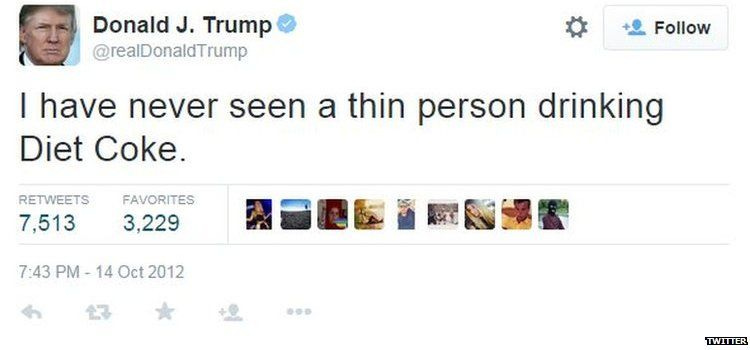Artificial sweeteners and the World Health Organisation
Has the WHO cocked up again or is it the public health policies that are wrong?
‘I have never seen a thin person drinking Diet Coke’, tweeted Donald Trump in 2012. ‘This stuff just doesn’t work,’ he explained. ‘It makes you hungry.’
The World Health Organisation now seems to agree. This week it released new guidelines stating that the use of artificial sweeteners ‘does not confer any long-term benefit in reducing body fat in adults or children’. It also warned that there may be ‘potential undesirable effects’ from long-term use.
This does not mean that sugar is back on the menu. The WHO says it hopes people will simply ‘reduce the sweetness of the diet altogether’, but if they have a sweet tooth they should stick to fruit. Fat chance. Rather than give up cakes and cookies, the main lesson the public will draw from this latest U-turn is a familiar one: the WHO doesn’t know what it’s doing and should be ignored. First it said SARS-CoV-2 wasn’t airborne, then it said it was. It said face masks were useless for the general population in a pandemic, then it said they were essential.
It is less than a year since the WHO published a ‘sugar factsheet’ in which it urged the food and beverage industry to ‘replace sugars with non-sugar sweeteners’. It now says that those sweeteners are useless for weight management and could be dangerous.
Around the world, governments are pressuring food companies into substituting artificial sweeteners for sugar in their products. The UK’s sugar tax was specifically designed to encourage soda manufacturers to remove sugar and replace it with sweeteners. Childhood obesity has since reached record highs. Now we know why.
Or do we? The WHO has been wrong so many times that there is no reason to assume it has got it right this time. Almost every health claim in the report it bases the guidance on is made with ‘low certainty’ or ‘very low certainty’. Its recommendation to steer clear of sweeteners is ‘based on evidence of low certainty overall’. In a sense, this isn’t the WHO’s fault. Nutritional epidemiology is mostly junk science which offers a range of contradictory findings that are wide open to interpretation.
What the WHO says is not the final word on a matter. The WHO doesn’t have a team of uber-experts who can see more clearly than other scientists. When there is a difference of scientific opinion, the WHO simply picks a side and lets that team write the report. That’s how you end up with incredibly partisan reports about alcohol coming out under the WHO’s name and a stance on vaping that is not conducive to public health.
On the face of it, the simple fact that artificial sweeteners contain no calories should make them a better option, but there is an argument - as made by Mr Trump - that they increase appetite and make people eat more. Despite all the money pumped into public health research, neither of these hypotheses has been comprehensively proven or disproven. After decades of work, this field of research still feels like it is in its infancy.
This wouldn’t matter so much if public policy wasn’t based on the shifting sands of quack science. If the WHO’s latest guidelines are correct, sugar taxes designed to encourage drinks manufacturers to replace sugar with sweeteners have been a waste of time and possibly even a deadly mistake. If they are wrong, it’s another reason to defund the corrupt and incompetent WHO.
In recent years, there have been scares about fat, sugar, carbs, ‘ultra-processed food’ and now sweeteners. The science seems to change with the weather. To paraphrase Donald Trump, I am calling for a total and complete shutdown of nutritional epidemiology until our country's representatives can figure out what is going on.






As a type 1 diabetic for 30 years I rely on articial sweeteners. What's good about cole slaw without a little bit of sweetness? What about hone made salad dressings without some sweetness? Ditto most anything home cooked with sugar in the recipe? Sparkingly mineral water has some sweetness! What's in it that makes it sweet? Granted Americans are addicted to sugar. Remove it from your diet and you will eventually stop craving it. Scandinavians and even Canadians eat less sugar, but this is another case of the WHO and Biden lawmakers in the US making a statement before having a practical change. "Eat Less Sugar: ELS"... sure, that will work. Better make it law!
Although the presentation is misleading (reviewing in BMJ is made by US lawyers https://twitter.com/daniel_corcos/status/1659546141644472320 ), it’s clear from the data that all cause mortality is increased with artificially sweetened beverages as compared to plain water.
https://www.bmj.com/content/381/bmj-2022-073406?fbclid=IwAR2l6uOVE5rCv2EoHIelbBCRHyTDCPs0yQtOHDcyU3AVbSwvxV-HZQUsHP8